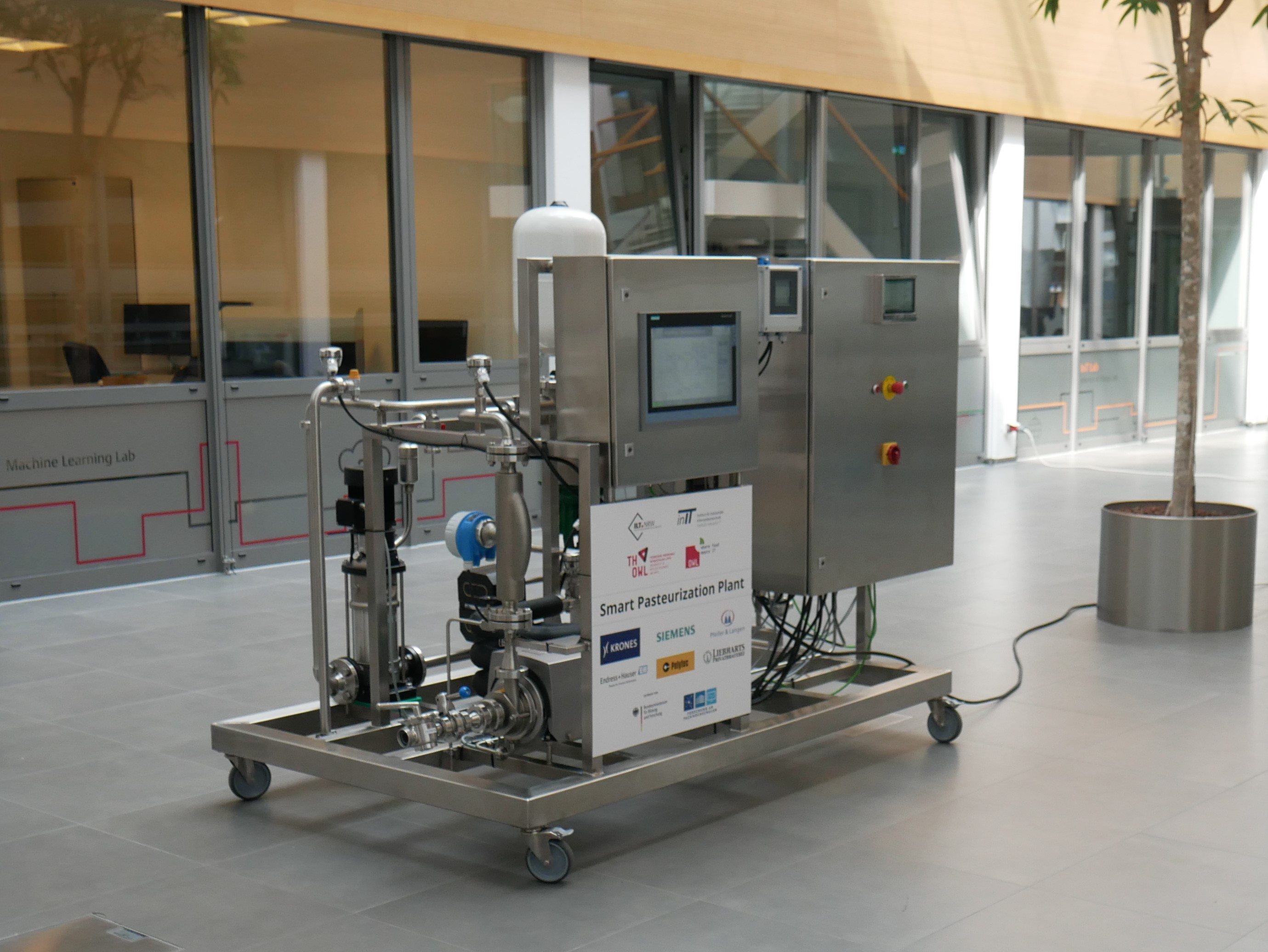Goal: To develop a cyber-physical system for controlling flash pasteurizers for beverage preservation of liquid food.
Project team:
Prof. Dr.-Ing. Jan Schneider, Knut Schwarzer, Imke Weishaupt, Barış Gün Sürmeli, Arthur Gossen
Cooperation partners:
Prof. Dr. Henning Trsek (inIT, TH-OWL), The companies Polytec, Krones, Endress & Hauser and the Liebharts brewery, Siemens
Project sponsor/funding agency: BMBF
Duration: 01.08.2017 - 30.04.2022
The interdisciplinary collaboration between the university institutes ILT.NRW (Institute for Life Science Technologies) and inIT (Institute for Industrial Information Technology) initiated in 2015 is now bearing fruit. In addition to the launch of the smartFoodTechnologyOWL partnership at the beginning of the year, the SMARTPas project, which is funded with approximately EUR 1 million by the BMBF's Young Engineers Program, began its work in August 2017. The aim of the project, led by Professor Jan Schneider, is to develop a cyber-physical system for controlling flash pasteurizers for preserving beverages. In addition to Professor Trsek's group (inIT), the project partners include the companies Polytec, Krones, Endress & Hauser and the private brewery Liebharts from Detmold. During the project, three graduates had the opportunity to work on their doctoral theses in cooperation with universities.
Beverages must have a long shelf life without refrigeration. To ensure this shelf life and prevent microbiological spoilage, beverages are pasteurized in so-called short-term heating systems. In this process, the beverages are heated, held at a maximum temperature for a short time, and cooled again. However, previous techniques work relatively imprecisely, so high safety margins have to be factored in. As a result, the products are subjected to unnecessarily high thermal stress. Both the quality and the chemical shelf life suffer as a result. The aim of the project is to use digital techniques to reduce costs and improve product quality.
The project aims to demonstrate that digitization and modeling of the product and the process can make a food processing method safer and more resource- and cost-efficient. A predictive model, also called a "virtual image," first uses inline NIR spectroscopy and cloud-based expert knowledge to characterize the beverage in terms of microbial risks and derive a suitable set of parameters for the plant. A second model monitors the actual heat input based on chemical changes in the beverage. A pilot plant was built as a demonstration project. A cloud-based service platform is to be integrated into this, which will enable autonomous control of the plant. The expected results of the research project can be implemented at beverage producers with little effort by integrating sensors and cloud connection.




